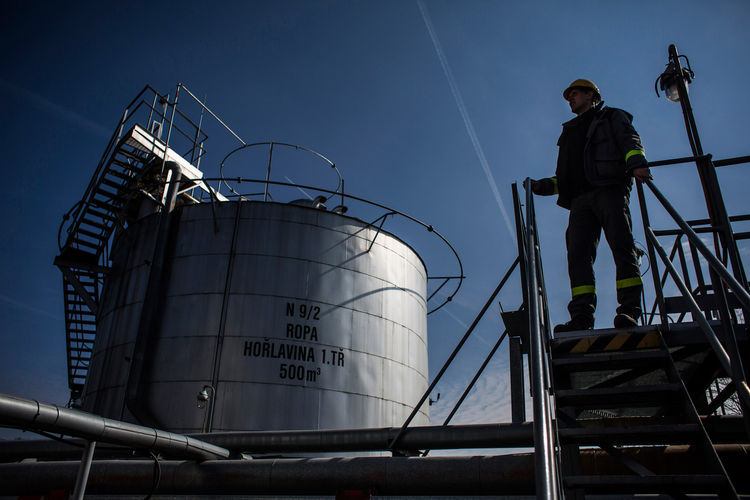- Petroleum Product Depot Owners Shut Down Operations
The Depot and Petroleum Products Marketers Association of Nigeria on Sunday directed all its members to shut down operations at midnight of Sunday, December 9, 2018, until the Federal Government pays all the outstanding debt which it owed the marketers.
DAPPMAN’s declaration came less than 24 hours after the ankFedeal Government announced that it would pay N236bn to oil marketers this Friday as the first tranche of the outstanding subsidy claims that it owed members of the depot owners as well as those of the Major Oil Marketers Association of Nigeria.
Responding to an enquiry sent by our correspondent on whether the association would still proceed on strike despite the government’s latest promise, the Executive Secretary, DAPPMAN, Olufemi Adewole, replied, “Yes, we are proceeding, since we didn’t get the Federal Government’s assurances of receiving the funds which would help pay December salaries.”
He said the association took a bold step to stop the financial haemorrhage of its members by the painful disengagement of its loyal workforce after over three years of engaging the Federal Government in the efforts to secure the payment of all subsidy induced debts owed marketers.
The association’s spokesperson stated that till date, the efforts “have not yielded the desired results.”
Adewole said, “As you are aware, the association reviewed the suspension of the ultimatum given to the Federal Government on December 25, 2017, which was suspended due to the intervention of well meaning Nigerians and the Federal Government’s promise to immediately pay marketers the outstanding subsidy- induced debts.
“Unfortunately as at today, and almost 12 months to the date, all we got so far are invitations to meetings and dialogues which have so far not stopped the daily increasing interest on these debts which are owed banks and agencies, and which, also has not manifested as credit to marketers.”
Adewole said DAPPMA duly notified the Federal Government through the Federal Ministry of Finance and the Debt Management Office, and directly informed the presidency.
He said the association informed the government of its of financial constraints and the challenge of paying staff salaries beyond November 30, 2018, except its members received help via the payment of all outstanding debts which include subsidy, interest and foreign exchange differentials with summation calculated up to December 31, 2018.
He said, “Further talks to which we are usually invited, which now seem to be their response to our follow ups on these debts, never consented to our requests for full cash payment of these debts, hence the regrettable decision we have had to take to let go of our loyal staff who we have sustained through bank facilities at outrageous interest rates.
“Premised on our inability pay December 2018 salaries and to avoid owing staff for work done without any hope of paying them, it is hereby agreed that, since our staff have been disengaged, all DAPPMAN member depots are not in a position to operate, hence will shut down operations at midnight, Sunday, December 9, 2018 until the Federal Government pays our calculated claims: the remaining subsidy (to few members), forex differentials and interest incurred up to December 31, 2018.”
Adewole said this decision was binding on all members of the association and full compliance was expected from every member company of the association.
He said the association shall revert in the same vein with any other directives as might be deemed necessary.

 Forex2 weeks ago
Forex2 weeks ago


 Naira1 week ago
Naira1 week ago
 Naira4 weeks ago
Naira4 weeks ago
 Company News4 weeks ago
Company News4 weeks ago




 Naira1 week ago
Naira1 week ago
 Billionaire Watch1 week ago
Billionaire Watch1 week ago




 Naira3 weeks ago
Naira3 weeks ago




 Naira1 week ago
Naira1 week ago














